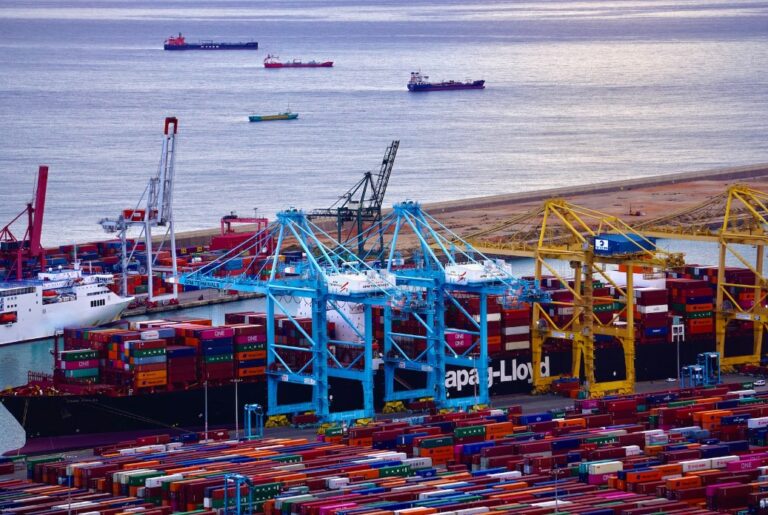In an era where the interconnectedness of our global fabric stands as a defining feature, the emergence of deglobalization asserts itself as a counterforce. It challenges the established norms in international relations, trade dynamics, and the tapestry of cultural exchange.
Nations find themselves grappling with the ever-shifting landscapes of politics and navigating through the mists of economic uncertainties. In this condition, an acute comprehension of the delicacy inherent in the concept of deglobalization takes on an escalating significance.
Table of Contents
What is deglobalization?
In international relations, deglobalization emerges as the intricate process of diminishing interdependence and integration among specific entities globally, typically nation-states. It signifies a shift towards a less interconnected world, characterized by robust nation-states, localized solutions, and stringent border controls. This is instead of relying on global institutions, treaties, and unrestricted movement.
Deglobalization spans economic, trade, social, technological, cultural, and political dimensions, with a predominant focus on the realm of international economics in existing research.
The discourse surrounding deglobalization has become entwined with considerations of supply chain resiliency in recent years. The intertwining is a consequence of disruptions in the supply chain due to the impact of COVID. It’s also fueled by the heightened awareness of supply chain risks amid conflicts and domestic concerns.
Theoretically, policies fostering deglobalization aim to shield domestic industries, foster local employment opportunities, and alleviate economic disparities within a nation. However, the potential drawbacks include curbing the fluidity of goods, services, and human movement. This can limit innovation and jeopardize various forms of international cooperation that foster interdependence and deter armed conflicts.
Decisions rooted in democratic processes, such as the election of President Trump with an “America First” agenda and the Brexit movement, propel the global deglobalization phenomenon. The world appears to be on the cusp of an era marked by deglobalization. This shift is catalyzed by events such as the conflict in Ukraine, the enduring impact of COVID-19, and the global shift towards achieving net-zero objectives.
Factors affecting deglobalization
The nuanced impacts of deglobalization encompass a spectrum of positivity and negativity. On the favourable side, deglobalization policies stand as guardians for domestic industries and catalysts for local employment.
Conversely, they manipulate the potential to reduce overall economic growth by constraining the circulation of goods, services, and people. This stifles innovation and threatens many forms of international cooperation that foster global interdependence and mitigate the inclination towards armed conflict.
Various factors contribute to the unfolding of deglobalization, among them:
- Trade imbalance: Scholars posit that the inequities in trade represent a pivotal driver propelling deglobalization;
- Political pressures: Political pressure also plays a role in advancing deglobalization. Protectionist trade policies and import restrictions, borne out of political pressures, serve to cut down foreign competition. This fortifies domestic industries and safeguards employment;
- Populism: The rise of populist movements further fuels the deglobalization narrative. Leaders adopt populist ideologies often prioritize national interests over global collaboration, fostering an environment conducive to deglobalization;
- High unemployment rates: The scholarly discourse suggests that elevated levels of unemployment contribute to the trend. Policies such as protectionist trade measures and import restrictions are posited to shield domestic industries from foreign competition, preserving jobs in the process;
- Disruptions: Global disruptions in one geographic sphere resonate across the entire economic landscape, amplifying calls for deglobalization. The upheaval caused by the COVID-19 pandemic, inducing disruptions in global supply chains and trade flows, is an illustrative instance.
The benefits of deglobalization
Deglobalization confines the process of diminishing interdependence among nations globally. Amidst the complexity and political degree surrounding its effects, there exists a spectrum of advantages attributed to this strategic shift. Here are some of the merits associated with deglobalization:
- Increased production for domestic markets: Deglobalization facilitates national self-sufficiency, fostering an environment conducive to heightened production for domestic markets;
- Preservation of cultural identity and traditions: A noteworthy benefit lies in the potential for countries to safeguard and preserve their cultural identity and traditions. This is a consequence of the deglobalization process;
- Better control of production processes: Initiatives such as reshoring, instigated by the trend, offer advantages to firms and consumers by affording better control over production processes. Moreover, reshoring serves as a deterrent to the negative ramifications of disruptions in one country on others;
- Local industries growth: It serves as a catalyst for the growth of local industries, unlocking profound opportunities for regional and local economies. This growth potential is a direct outcome of the strategic shift towards reduced global interdependence.
Potential scenarios with deglobalization in the future
As deglobalization unfurls, various scenarios materialise, weaving through various dimensions. Economically, the implementation of protectionist policies may ignite a renaissance for domestic industries, yet simultaneously kindle the flames of trade tensions. On the political stage, the prioritisation of national sovereignty by nations has the potential to fracture longstanding global alliances.
Culturally, the revival of localized identities may fortify unique traditions, creating a tapestry of diversity. Environmentally, the waning of international cooperation could pose a hurdle to collective efforts against the looming specter of climate change.
In the technological realm, the fragmentation of supply chains may cast a shadow over the landscape of innovation. Socially, the upsurge in nationalism might stoke the embers of xenophobia, posing a formidable challenge to the fabric of multiculturalism.
Read more: The mass production paradigm, advantages and disadvantages. Is this model soon over?












